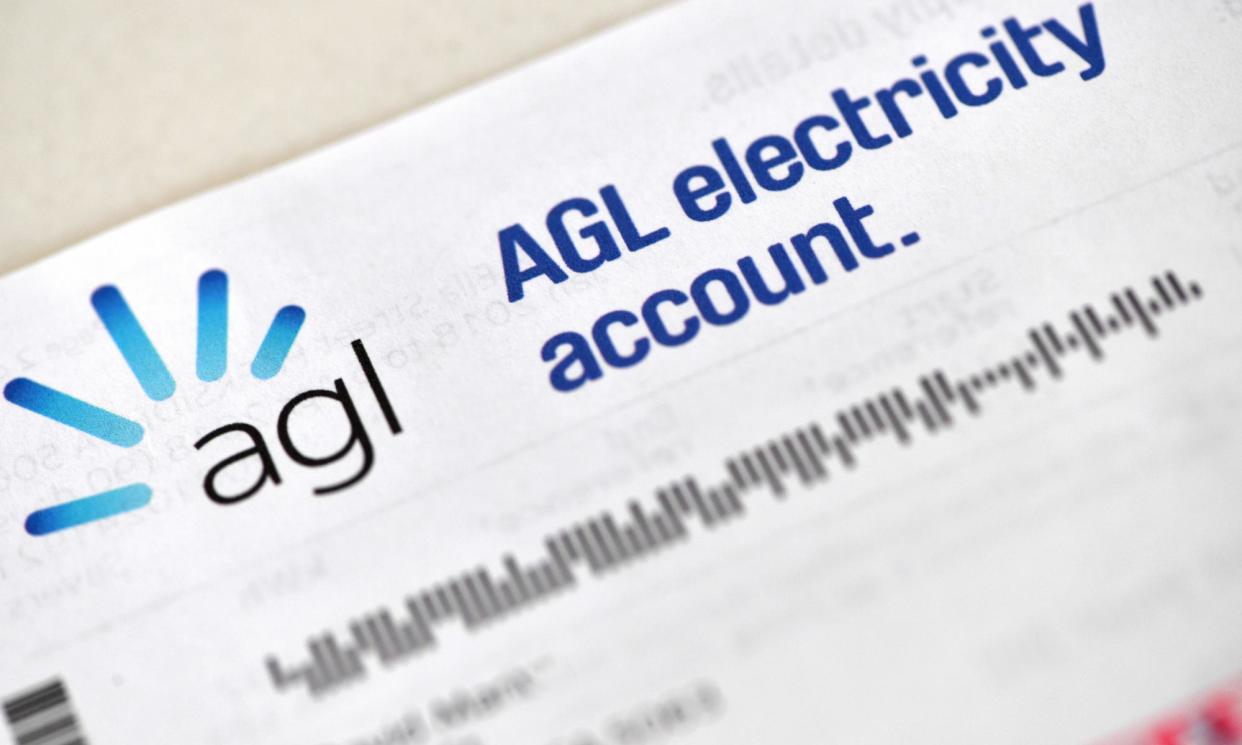AGL breached rules 16,000 times in wrongly taking welfare money from hundreds of people, court rules

AGL breached Australian energy rules more than 16,000 times through its use of the government-run Centrepay system to wrongly take welfare money from almost 500 people years after they ceased being customers, a court has ruled.
The landmark federal court judgment could trigger proceedings against three other energy retailers, which were referred to the regulator following a Guardian investigation into failures of the Centrepay system.
Centrepay, a payment system administered by Services Australia, gives government-approved businesses early access to a person’s welfare payments with the aim of ensuring funds first go towards necessities like energy bills, rent, and school fees.
But the Guardian has revealed how the system is facilitating financial harm to some of the country’s most vulnerable.
Centrepay has been used by home appliance rental companies to massively overcharge Indigenous Australians for low-value goods and by an extreme Christian rehabilitation centre to prop itself up financially while subjecting residents to gay conversion therapy and forced exorcisms.
Related: Consumer watchdog urges crackdown on businesses using Centrepay to cause financial harm
Energy retailers, including AGL, have used Centrepay to continue to deduct money from the welfare payments of low-income Australians long after they had ceased being customers.
AGL is the first company to face legal action over Centrepay misuse.
The Australian Energy Regulator alleged about 483 customers were overcharged over a period of five years and took AGL to the federal court. Court documents suggest the customers were overcharged a total of $700,000.
In one case, court documents show AGL became aware that a Centrepay user had ceased being a customer on 12 January 2017 but used Centrepay to make 100 subsequent deductions worth $4,111 from the person’s welfare over almost four years.
The company had disputed liability, saying it had limited control over Centrepay deductions.
But on Friday the federal court found in the regulator’s favour, ruling AGL had breached the national energy retail rules 16,156 times. It found 3,531 contraventions through AGL’s failure to notify affected customers. The remaining 12,625 breaches related to AGL’s failure to refund the money.
The court also found the company had broken retail law by failing to implement policies, systems and procedures to ensure they were complying with the energy retail rules.
Centrepay was established in 1998 under the Howard government as a voluntary bill-paying service for people receiving Centrelink payments to make automatic deductions for essentials like rent and utilities.
It currently has more than 620,000 users. A large percentage of them are receiving disability support payments. Almost a third are Aboriginal people, predominantly women, from remote areas, receiving jobseeker or parenting payments.
Over time Centrepay has expanded to include a range of businesses and services.
There are now more than 15,000 companies approved to access Centrepay, which facilitated 23.7 million transactions last year worth $2.7bn. Each transaction incurs a 99c fee, paid to the government by businesses using the system.
Over the past decade, consumer advocates have raised concerns that several of the businesses registered to access Centrepay may be causing financial harm to vulnerable customers.
The corporate regulator is investigating dozens of companies. At least four that it has already penalised remain on the system.
In May 2024, the government announced a full review of the system to increase compliance, transparency and strengthen auditing processes.
Services Australia, which operates the system, says it is working towards improving delivery.
In 2022-23, contracts ended for 12 Centrepay businesses due to non-compliance.
Justice Kylie Downes found that AGL had “no entitlement to receive and retain these amounts”.
“The AGL Entities received, processed and retained payments for amounts that exceeded the amount that they were entitled to charge the customers,” Downes found. “AGL, through a deliberate design … treated each deduction as a payment for a bill, even when the final bill had been paid.”
“Then rather than refunding that excess money to the affected customer at that point, AGL, through its payment methodology, applied the amount as a credit to a future bill, even when there was not going to be one.”
The AER welcomed the decision late on Friday, saying retailers were expected to have systems in place to ensure they refunded money to overcharged customers.
Related: Guardian Australia wins award for series exposing economic abuse at Centrepay
“It’s vital that retailers identify and respond as required when consumers are adversely impacted. We will continue to investigate conduct that harms consumers and take enforcement action where warranted,” AER’s chair, Clare Savage, said in a statement.
AGL said it was considering the ruling.
“AGL is considering the judgment handed down earlier today,” a spokesperson said. “AGL received no benefit from these overpayments and all those impacted have been refunded.”
The federal government has already referred three other energy retailers to the AER.
Parliament has previously heard that Origin Energy is accused of receiving $2.5m from the welfare payments of almost 3,000 former customers via Centrepay.
Ergon Energy has also previously confirmed it was refunding funds wrongly received from welfare recipients via Centrepay.
In a previous statement, the AER said it would wait on the outcome of its case against AGL before deciding whether to act on the three other referrals it has received from government.


